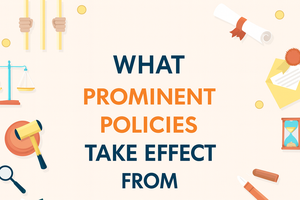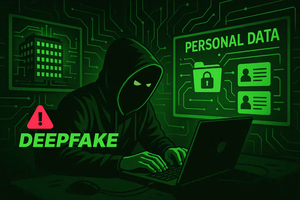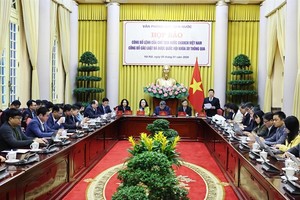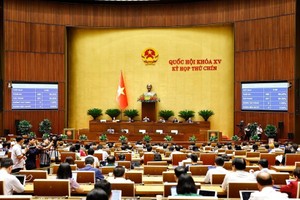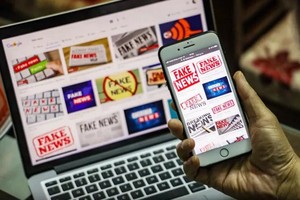
KOLs: Who are they?
While many KOLs (Key Opinion Leaders) certainly contribute positively, a “deviant” faction has emerged. These are figures who reportedly leverage their social media platforms to manipulate public emotion, extract illicit economic profit, and, in some cases, even work to undermine social order.
It’s become essential, then, to correctly identify the true role and responsibilities of these figures, and to steer them into a framework of ethical standards and legal compliance. As a rule of thumb, a true KOL is generally defined by two basic characteristics. First, they possess genuine credibility in a specific field, built on their extensive understanding, qualifications, and deep expertise. Second, their credibility and knowledge give them the power to impact a specific audience, exert strong influence, and shape public discourse.
According to the Ministry of Public Security, a “Reputable KOL” is listed as having 5,000 followers or more. A “Network KOL” has 10,000 followers or more. And then there are “Hidden KOLs” – figures who manage, operate, and dominate systems of accounts, pages, or groups, where at least one asset in that network has 10,000 followers.
In practice, these influencers can be broadly “classified” into four social groups:
- People with existing real-world prestige who then participate and exert influence online.
- People with no real-world prestige who manage to build influence solely from a large online following.
- People who have an indirect influence online.
- People whose influence is primarily in social media marketing.
It’s easy to spot the common threads. Most KOLs are creative, confident, highly sensitive to trends, and possess a deep craving for recognition. But when that aspiration for recognition eclipses ethical boundaries, “cyber power” metastasizes into a “delusion of power” – a dangerous place where a single individual’s voice can drown out the collective reason of the community.
Legal framework, civic duty
A major change is on the horizon. With Law No. 75/2025/QH15 (which amends the 2012 Law on Advertising) set to take effect on January 1, 2026, influencers will, for the first time, have clear legal liability for their advertising activities.
According to the new law, an influencer who advertises falsely can be prosecuted under Article 11. This could mean administrative penalties or even criminal prosecution, depending on the severity. They also face liability for damages caused to consumers and will be held legally responsible if ad content isn’t “honest, clear, and non-misleading” (per Article 19).
This new law joins the existing Law on Cybersecurity and various other regulations on advertising and taxes, which already outline the legal responsibilities for influential individuals. But at the end of the day, legal statutes can’t solve the core problem.
The issue is one of self-regulation. If KOLs truly want long-term careers, they must understand that their civic responsibility outweighs their personal brand. And if the public doesn't want to be deceived, they need to learn to trust with their heads, not just their hearts.
When keyboard becomes “weapon”
Judging from real-world events, it’s undeniable that KOLs wield enormous influence. In some cases, they’ve even become “thought shapers,” capable of not just leading public opinion but actively manipulating crowds, often with unpredictable consequences.
What’s baffling is that even after a series of their legal violations are exposed, ranging from producing counterfeit goods and false advertising to massive tax evasion, it often doesn’t shake the faith of a large segment of their followers. This phenomenon reflects the potent combination of psychology, social dynamics, and the very mechanics of social media.
First, KOLs build relatable “stories” to create strong, empathetic bonds. For example, Quang Linh Vlogs, the “Kind Vietnamese” who offers much needed help in Angola, was defended by fans despite his fake Kera candy (0.6 percent vegetables vs. 28 percent advertised). Hang Du Muc, the “strong businesswoman,” was defended in this same case despite her deception.
Criminologist Dao Trung Hieu calls this a “tactic of appealing to emotion rather than reason.” This activates a “trust in the heart” effect, bypassing rational verification. Consumers “buy based on trust in an image and a story,” leading to blindness.
Second, “trust” is amplified by the herd effect and social media algorithms, creating echo chambers. When a KOL’s violation is exposed, fans immediately “normalize” the offense, calling it a “misunderstanding.”
For example, Ngan 98 was reportedly arrested in October 2025 for producing fake food, yet other KOLs and fans still supported her, reframing it as “personal drama.” Her husband’s “sad” post received massive sympathy. This herd effect is dangerous; it overwhelms credibility and verification. Followers see millions of likes, feel a sense of safety, and adopt a dangerous “if everyone believes it, it must be true” mentality.
Third, a pervasive “if-a-celebrity-uses-it-it-must-be-good” mentality combines with a lack of legal awareness. A prime example is Miss Nguyen Thuc Thuy Tien, a “positive role model,” who was indicted for customer deception in the Kera candy case (and fined VND25 million – US$950). Then there’s Hoang Huong, arrested for alleged tax evasion of VND2,100 billion ($82.5 million) and false advertising. She retained trust thanks to her cultivated “businesswoman serving the community” image from charity livestreams. Reportedly, even after her arrest, many followers insisted, “No way... She’s busy doing charity work.”
Finally, widespread socio-economic pressure and a public desire for quick fixes act as a catalyst, making people want to believe. KOLs exploit this, creating a false “opportunity that can’t be missed,” often as a pretext for a scam. It’s a clear sign consumers are operating on emotion far more than on reason.
In a maturing social context with legal and governmental bottlenecks, some KOLs exploit these gaps. They engage in psychological manipulation, steer public opinion, and create “dirty media” campaigns for illicit profit. Some reportedly even attack and distort Party/State laws, incite protests, and disseminate toxic information, allegedly exploiting ethnic or religious issues to sow division.
Exploited trust
The “my-idol-is-always-right” mentality makes consumers easy prey, leaving them bewildered when inspiring figures are hauled into court. Trust is exploited and emotions manipulated as social media devolves into an emotional court where pity or hatred, not facts, decide right and wrong. Influencers must understand their limits, and users must be more rational with their trust.
